Providing expert legal services for civil, family, construction, wills and estates and business law.
Providing expert legal services for civil, family, construction, wills and estates and business law.

Construction Law: Contract Conflicts And Extra Work Claims
A new construction project is an exciting time for you. Whether you are building a family home or working on a large-scale project, construction matters can be stressful. Working in collaboration with contractors and builders within a defined budget and tight timelines can complicate things, causing issues to arise between parties.
Construction Law is a specialized and critical component of Pathfinder Law services. We have significant and broad experience in all aspects of construction law, and our extensive breadth of experience and knowledge has provided our clients with a competitive advantage in dealing with the industry’s complexity.
Case Examination: Anway Construction Ltd. v. Hunte, 2020 BCSC 601
The case of Anway Construction Ltd. v. Hunte, 2020 BCSC 601, is a thorough examination of a contract dispute between a contractor and homeowners over the construction of a home under a cost-plus contract. The addition of a guaranteed maximum price was a legal alteration to the contract, according to the court, and the contractor was in breach of the contract by exceeding that sum. As a result, the court dismissed the case.
The court dismissed the contractor’s claim that overbilling was due to the many changes made by the homeowners throughout the course of the work, modifications that did not trigger the contract’s change provisions. Because no “consultant” had been assigned under the contract, the contractor claimed that the contractual change clauses had been superseded by the parties.
The contractor’s contention that the homeowners had agreed to a waiver of contractual change terms was similarly rejected by the court. The court did so by referring to the circumstances that must be met before a court may agree to waive contractual change restrictions, which were outlined in Kei-Ron Holdings Ltd. v. Coquihalla Motor Inn Ltd., 1996 CanLII 3443 (BC SC): (1) the work conducted was “additional labour” not covered by the contract’s terms; (2) the work was permitted by the owner; (3) the owner was aware that the extra work would increase the project’s cost; and (4) the owner waived or acquiesced the parties’ willful disregard for those provisions. This ruling is still being appealed.
As shown in the above-cited case, disputes can arise between homeowners and contractors, which have the possibility of becoming a much larger issue. Pathfinder Law has drafted a wide range of construction-related agreements, ranging from simple home construction and renovation contracts to complex construction documents on huge projects. We can also involve our construction litigation attorney in the assessment and careful drafting of such agreements to help identify and handle any foreseeable concerns before they become an issue.
We are also familiar with and skilled at deciphering and explaining the complex legal and technical requirements that commonly arise from documents commonly used in Construction Law. We have extensive experience assisting clients in the resolution of construction disputes before they become litigious, and are well equipped and experienced in guiding our clients through the rigours of the legal process.
Our goal is to work alongside clients and industry professionals to achieve the best possible outcome, through reconciliation, mediation, or arbitration whether in Small Claims Court, the Supreme Court, or the Court of Appeal. Pathfinder Law represents clients from every sector of the residential, commercial, and industrial construction industry. There is no case too big or small for Pathfinder Law.
Contact us at 604-850-4685 to set up a consultation today.
Disclaimer – The information contained herein is of a general nature. It is not intended to be legal advice and it is not intended to address the exact circumstances of any particular individual or entity. You should not rely on or act upon such information without receiving appropriate professional advice and without a thorough examination of your particular situation.
Abbotsford Office:
104-2001 McCallum Road, Abbotsford, BC V2S 3N5
Langley Office:
200-8661 201 St, Langley Twp, BC V2Y 0G9
Ph: 604-850-4685
*Complimentary consultations are only for consultations via telephone or videoconference.
Copyright Pathfinder Law Corporation Ltd. 2024 | Website Terms of Use & Disclaimer

